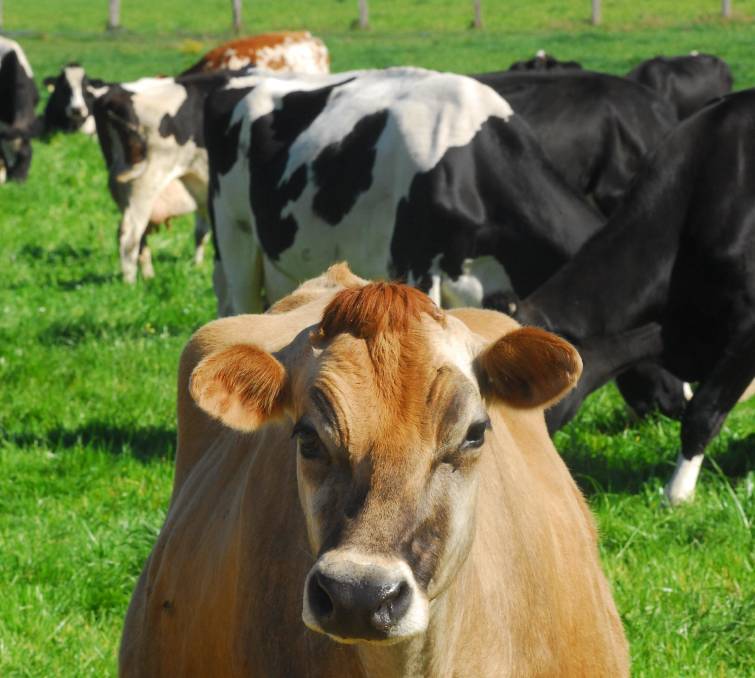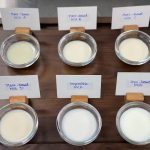
Processors had to publish standard form milk supply agreements on their website on June 1, but the ACCC alleged UDC asked dairy farmers to fill in details about their herd size and current milk buyer online before they could access the exclusive agreement.
The company also allegedly did not publish a non-exclusive agreement until August.
UDC, which bases its operations in Penola, South Australia, is part of southern Victoria’s big Warrnambool-based Midfield Group which also runs meat processing, retailing transport and farming operations, including a 10,000 cow milking herd.
Its three-year old processing plant has capacity to handle 300 million litres of raw milk a year.
“Processors must make their milk supply agreements publicly available, rather than putting them behind a barrier,” said ACCC deputy chairman Mick Keogh.
He said UDC’s failure to properly publish its agreements at the time required by the dairy code, may have made it difficult for farmers to quickly access key details to identify the best milk processor for their circumstances.
Not happy
UDC chief operating officer Andrew Wellington said the company was at odds with the ACCC decision, however, had no plans to challenge it.
He said UDC did not want to be distracted or undermine the intent of the mandatory code of conduct, which had been drawn up specifically to improve milk market transparency.
However, Mr Keogh said the ACCC was concerned UDC’s delay in publishing a nonexclusive agreement may have sent the incorrect message to farmers that the dairy company was not obliged to offer such agreements.
It’s very important that processors and farmers understand the requirements of the dairy code and comply with them
– Mick Keogh, Australian Competition and Consumer Commission
Farmers may have felt they had missed out on the option to consider a UDC non-exclusive agreement to supply milk to the company
“We know many farmers and processors are making time-critical milk supply decisions in June each year, so processors must make their documents publicly available by the due date,” he said.
“It’s very important that processors and farmers understand the requirements of the dairy code and comply with them,,” Mr Keogh said.
Full support
UDC’s Mr Wellington emphasised the young company fully supported the dairy code and had, in fact, drawn up its milk contracts based on the draft code of conduct, well before the code became official.
But while not wanting to get into a war with the ACCC, he said the company was disappointed the regulator had penalised UDC and called out its decision not to publish a non-exclusive supply agreement.
The ACCC was fully aware nothing was published on UDC’s website because the company’s interpreted the code as not needing a non-exclusive agreement given the processor did not have tiered or capped volume requirements in its exclusive contract.
The code did not clearly state we were expected to have a non-exclusive agreement
– Andrew Wellington, Union Dairy Company
Correspondence with the ACCC over how the code’s non-exclusive clause should be interpreted concluded with UDC immediately posting a non-exclusive agreement as soon as the regulator made a determination.
“I’m quite disappointed with the ACCC,” Mr Wellington said.
“The dairy code did not clearly state we were expected to have a non-exclusive agreement, the ACCC knew why we hadn’t published one, and they knew we immediately did put something up as soon as that interpretation was made clear to us.”
He said the company’s exclusive contract agreement was also compliant, butUDC had not initially expected farmers to access the document online until they had talked directly with the processor.
“We received all of our supplier inquiry around the kitchen table or over the phone,” Mr Wellington said.
“The only response we got from the website access was from three competing processors wanting to check out our contracts.”
What’s the code about?
The mandatory industry code came into effect on January 1 regulating the conduct of farmers and milk processors in their dealings with one another.
It aims to improve the clarity and transparency of trading arrangements between dairy farmers and those buying their milk.
Under the dairy code a publisher must, on or before 2pm on June 1 each year, publish on its website one or more standard forms of milk supply agreements.
Each standard form milk supply agreement needs to include a statement setting out the circumstances in which the processor would enter into the agreement.
Where a processor offers to enter into an exclusive supply agreement in particular circumstances, the code requires the company to publish an option of a non-exclusive supply agreement which it would also enter into in those particular circumstances.
The publication obligations apply to all processors with an annual aggregated turnover of $10m or more.

























